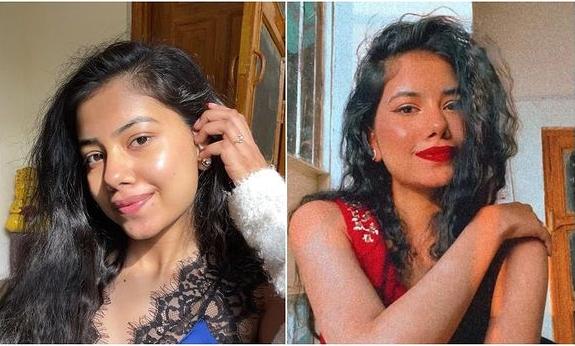Filter culture: Feeding insecurities
With an estimate of 3.6 billion users worldwide and over 95 million photos and videos being uploaded on Instagram every day, social media has become an integral part of today’s culture.
Social media platforms allow people to communicate and share their thoughts, feelings and experiences, allowing others to discover places, people and things with unbelievable ease. But with an increasing dependence on filters, notably beauty filters, most of the shots are so heavily edited and far away from reality. And when the filters and editing is aimed at making a human being look perfect, it can set off a chain reaction amongst people.
Mental health experts say that the need to post share-worthy, augmented selfies, edited to impossible standards has been negatively impacting the self-esteem and conception of beauty of people, especially among teenagers.
“People, teenagers especially always want to seek validation from others, which conveys a lot about how one sees herself/himself as a person. We are always seeking that kind acceptance from the society which indicates lack of self love. The need for getting that perfect shot arises the fear of not being accepted,” Ritansha Grover, a Delhi-based psychologist tells Media India Group.
While posting an occasional makeup-free flawless image through the use of Instagram story filters may seem harmless, repeated use creates a new normal for how we think our faces should look due to the edited image receiving positive reinforcement in the form of likes and comments, blurring the lines between real and make-believe in the process.
“You can barely see what a person actually is through these filters. The main purpose of these filters is to clog the perception from what the reality actually is, which is completely different from what is portrayed on social media. And this becomes the source of insecurities and body image issues for teens, compelling them to measure themselves against unrealistic beauty standards,” says Grover.
While Instagram camera filters have been around since 2019, but with the IG shops and Reels becoming mainstream, the use of camera effects and face altering features have increased considerably, especially by social media influencers and content creators.
“I would be lying if I said that I don’t use filters at all because that’s certainly not the case. I do put pictures with filters online very often. As an influencer I believe its one’s personal choice if they always want to look put together or if they just want to go ahead in front of the camera and put the real picture out there. However, I personally believe that people expect social media influencers to always be well dressed and flawless due to which most influencers or atleast I feel compelled to edit my images and videos,” Amisha Sharma, a social media influencer tells Media India Group.
While many countries like the UK have realised the dangers of misleading filter beauty content overflowing on social media platforms, leading the Advertising Standards Authority (ASA), UK, to bar influencers from using these filters. However, Indians have expressed low levels of concern about the impact of filters on their children’s wellbeing and use of body filters is highly normalised and socially accepted, says a study conducted by Google in 2020.
Arrival of change
While there is an unpleasant and detrimental side of social media we use frequently, a lot of people and influencers have been using it to combat the harmful notions of perfections being fed to us.
Many social media personalities have been embracing their makeup free natural self publicly, proving that beauty exists in all forms and even imperfections.
“As a social media influencer, I try to talk about the topic of body and skin positivity, as often as possible. By constantly engaging with people who are not confident with themselves or with their own skin, their own body or whatever it is by putting up raw pictures online on my social media handles, sharing my own experiences of body shaming and asking my fellow creators to join hands for the same. I also put up pictures online with no filter and no makeup on, as much as I like trying out new filters and clicking pictures in different styles of filters, I also equally love posting raw pictures because that actually connects you with your audience and shows them the real you. And, it’s not just about connecting with your audience but it’d also about feeling empowered with your own self,” says Sharma.
While some have found comfort in making up their perfect image online, many are taking the opportunity to embrace the ‘au natural’ look and redefine beauty.










